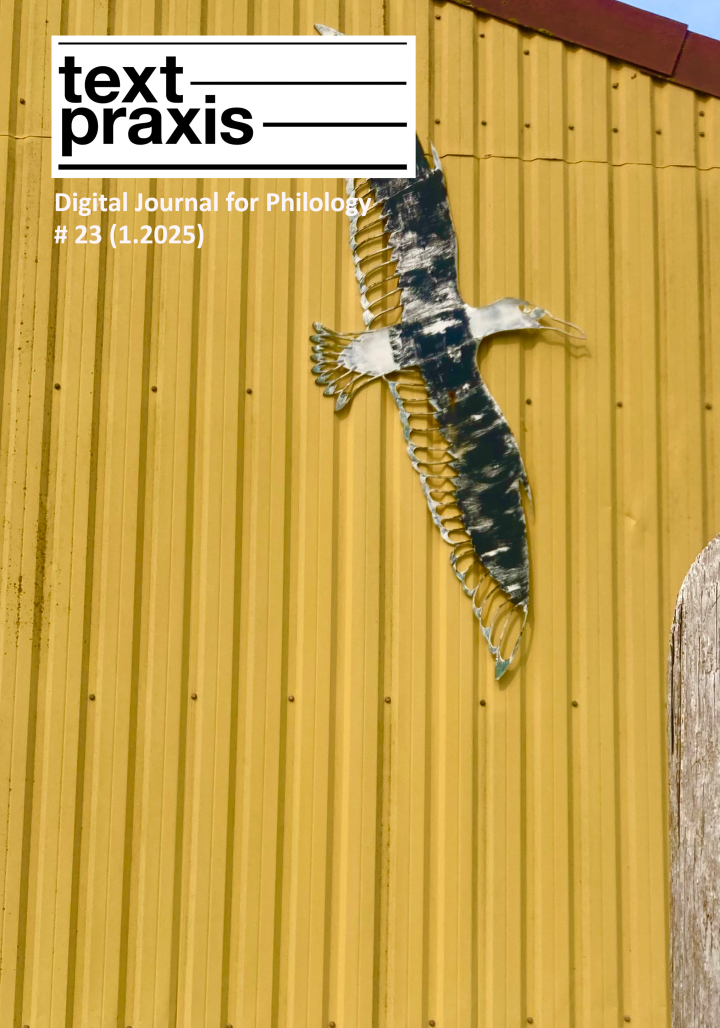Digital Journal for Philology

Textpraxis # 23 (1.2025)
In this issue, three articles are presented once again under the sections Theories of Literary Study, Literature and Society, and Literary Studies and Practice: Julia Bodenburg, adopting a literary and media studies perspective, examines the dialogical genre of the Totengespräch, tracing its formal variations and mediality across three stages. Her analysis focuses on the figure of the Secretarius—a character that has received little scholarly attention to date—and explores its media-reflective function. Patrick Siegmann’s contribution engages with the concept of Neudeutscher Klartext, examining it as a literary response to the lived realities of people with migration backgrounds in Germany. He analyzes the traditions within which Neudeutscher Klartext situates itself, its significance for literary scholarship, and the opportunities it opens for future literary research. Nadine N. Başer offers a sociological perspective on the literary representation of class mobility, taking Édouard Louis’s Combats et métamorphoses d’une femme as a case study. The text explores how both the transformation of living conditions and their retrospective reflection create a literary space in which gendered power structures become visible in the process of class transition.
From the perspective of literary and media studies, the article examines the dialogical genre of the conversation with the dead, its formal variance and mediality in three stages: From the genre model established by Lucian (1), two death dialogues within the macro-space ›early modern period‹ are analyzed with a view to the category ›public sphere‹: Ulrich von Hutten's Phalarismus (2) and David Fassmann's Gespräche im Reiche derer Todten (3) provide socially relevant spaces of communication. In both cases, figures of transition play key roles. The focus is on the figure of the secretarius and his media-reflective function, which has hardly been covered by previous research.
The term ›Neudeutscher Klartext (›New German Plain Text‹) refers to a direct literary engagement with the lived realities of people with migration backgrounds in Germany. Coined in 2023 by Welt author Mladen Gladić, the concept exhibits clear parallels to the established category of ›postmigrant literature‹, which likewise challenges traditional migration discourses and foregrounds themes such as identity formation within a transcultural society. Authors associated with this mode of writing frequently employ new and innovative narrative forms to articulate experiences of migration and racism. This study focuses on analyzing the literary traditions within which ›Neudeutscher Klartext‹ situates itself, its significance within literary scholarship, and the potential it holds for advancing research in literary studies.
In Combats et métamorphoses d’une femme, the narrator reflects on the class and gender relations of his time, which he experiences first as the child of a working-class family and later within the circles of Parisian intellectuals. Through writing about and to the figure of Monique, the negotiation of a mother-son relationship unfolds, through which social relations are illuminated. The transformation of living conditions, as well as the retrospective perspective, open up a literary space in which gendered power structures are expressed in the course of a change in class.
